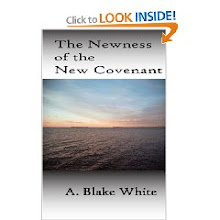"Here are words Jesus said to His friends the night before He was killed, 'If you love me, you will obey what I command. I will ask the Father, and he will give you another Counselor to be with you for ever- the Spirit of truth...I will not leave you as orphans; I will come to you' (John 14:15-18).
These words introduce us to a new power, the One called in Scripture 'the Holy Spirit'. Jesus spoke of the Spirit to offset the fears of His followers when they grasped the fact that He was going to leave them. They thought that if He were to go away all their hopes would be crushed. 'Not so!' said Jesus. 'Not at all!' Later that evening the Lord Jesus added, 'It is for your good that I am going away. Unless I go away, the Counselor will not come to you; but if I go, I will send him to you' (John 16:7).
The coming of the Spirit was of first importance to the disciples, although just then they could not have told you why. The reason was this. To this point in their Christian lives the disciples had depended upon the Lord Jesus to empower them. Jesus encouraged them and instructed them and counseled them and rebuked them when they needed it. They drew upon His wisdom and guidance to keep them going. His presence and ministry to them was the fuel for their own efforts. They could not imagine life without Him. It was unthinkable.
Now here is what is important. These disciples were right in thinking they could not live without the Lord Jesus. This was not a case of mere sentimentality. It struck far deeper than that. Their understanding was sound. They must have the Lord Jesus or die spiritually. It was a simple as that! Yet there He was, telling them to bid Him goodbye. Or so it seemed.
But the all-important fact was this: the Spirit, who was to come, was God also. Just as Jesus Christ is God, so the Holy Spirit is God. Yet while the friends of Jesus could no longer have His physical presence, they still needed His wisdom and guidance. They wanted the refreshment that His counsel had brought them. And these things the Spirit of God would give. The Spirit would take the place of Jesus as the Helper of His friends. He would be 'another Jesus'! He would not be with them visibly as Jesus had been, but He would live within them, 'the Spirit of truth' (John 14:16-17).
Now you must not think of this simply as history. It is history, of course. Jesus' first-century followers found that the Spirit came to them and supplied the place that the Lord Jesus had held among them. All of that is true. But what interests us is this: it happens today. In every age since the Lord Jesus returned to His Father in heaven, He has given His Spirit to His people. The gift of the Spirit sustains us. And, if you come to Christ, He will sustain you as well.
The Bible gives two answers when we ask the question, 'What is it that the Spirit does for believers?' We might call these 'an outside answer' and 'an inside answer'. By an 'outside answer' I mean that the Spirit has done something outside of us to help us greatly. I am thinking of His work in producing the Scriptures. Of course, that was a once-for-all work. I want to take it up later. Just now, however, it is the 'inside answer' on which I want to focus. A major part of the Spirit's work is within the believer. There He plants an inclination to obey and follow the teaching of the Scriptures that He has produced. This 'inside' work necessarily goes on through all the Christian's life. It is this that sustains him.
In the last chapter, I told you that Jesus will assert His lordship over your life if you become a Christian. That is certainly true; He does it with all who follow Him. I do not know what kind of vision that fact raised in your mind. Perhaps none at all. But it is just possible that I led you to think of the Lord Jesus as working against your own inclinations and crushing you into submission. That is not the case. The truth is far different.
The Lord Jesus asserts His lorsdship by sending His Spirit. It is the Spirit's work to give us a love for the ways of Christ. It is not a question of continually beating back the Christian's desires. There is no forcing the believer to be what he should be. That is not how God works. For one thing, there would be no end to that task. If we were not changed inwardly we would need to be pushed along throughout eternity. But that is not the picture the Bible gives us. Not at all!
The Spirit forms our attitudes; that is the main thing. It is not that actions are unimportant. We dare not ignore them. But attitudes lie behind sincere actions, so that is where the Spirit goes to work. Paul shows us the result in his letter to the Galatians. 'The fruit of the Spirit is love, joy, peace, patience, kindness, goodness, faithfulness, gentleness, and self-control' (Gal. 5:22-23).
You do not get such 'fruit' by applying physical force. Love, joy, peace and the rest lie at the heart of what a man is. You must change the person to grow this fruit, and in this work the Spirit is continually engaged. We are commanded to have these fruits, these attitudes, in the Scriptures. And, as I have said, these same Scriptures were themselves produced by the Spirit. But He does not simply leave us with His commands. If we are Christians the Spirit gives us the desire to obey Him. In that way He makes these attitudes our own. His word outside us and His work within us go hand in hand."
The Spirit empowers His people to be obedient!
















